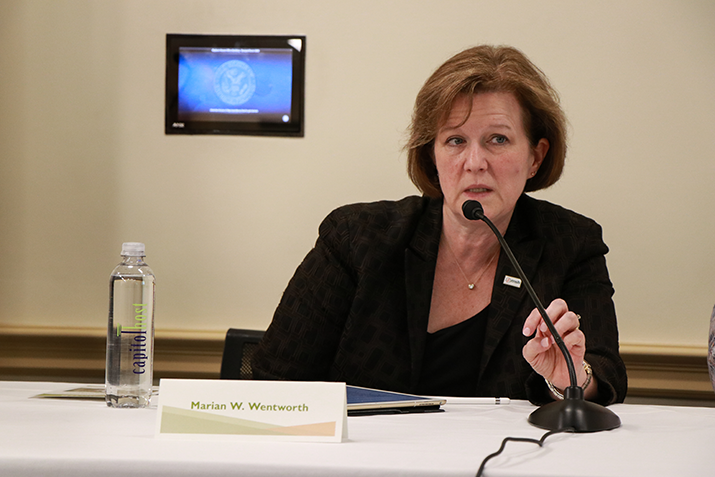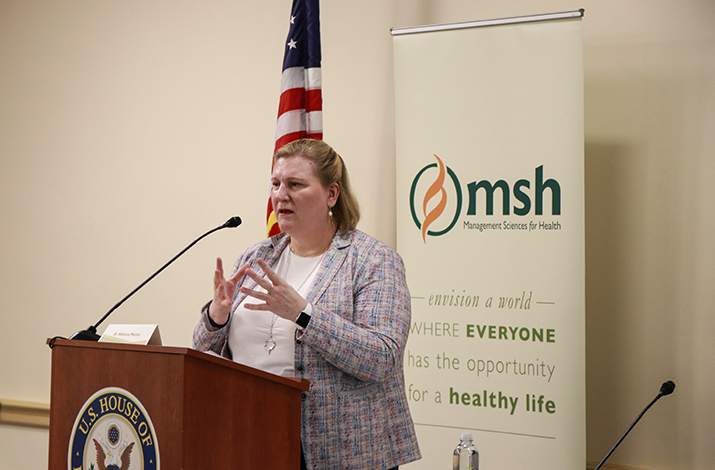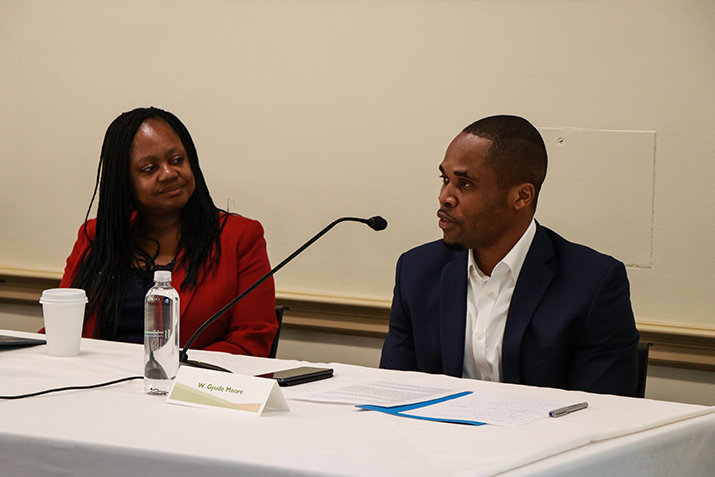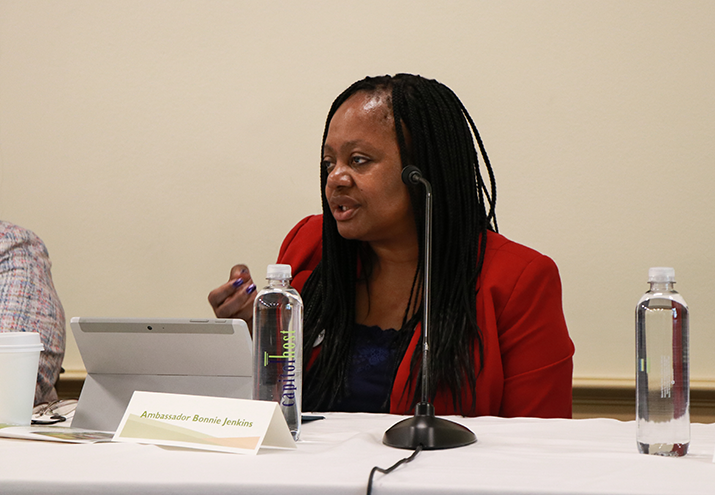Global Health Security is US National Security
Global Health Security is US National Security
![[From left to right: W. Gyude Moore, Reid Wilson, Ambassador Bonnie Jenkins, Dr. Rebecca Martin, and Marian W. Wentworth.] {Photo credit: Kenza Abu-Arja/MSH}](https://msh.org/wp-content/uploads/2019/05/photo-2019-05-03-08-12-42_715px_3.png)
On April 10, Congressman Gerry Connolly (D-VA) and Steve Chabot (R-OH) reintroduced the bipartisan Global Health Security Act, which reaffirms US commitment to promoting global health security. This proposed legislation aims to help the US prepare for and respond to infectious disease threats and prevent cross-border epidemics.
Management Sciences for Health (MSH), which supports this act, on May 3 hosted “Global health security is US National Security. What is health security and why does it matter” in conjunction with the office of Congresswoman Katherine Clark (D-MA), bringing together global health security experts, including members of the Centers for Disease Control and Prevention (CDC) and civil society, to discuss how investments in global health security strengthen public health systems, drive economic growth, and contribute to a stronger and safer United States. The discussion was moderated by Reid Wilson, journalist for The Hill.
In her opening remarks, MSH President and CEO Marian W. Wentworth emphasized the strong case for investment in global health security: “Disease outbreaks cost the world $60 billion a year, a number that matches the cost of wars and natural disasters. Yet preparedness costs are roughly $4.5 billion annually, just 65 cents per person per year globally.” She also noted the critical role that well-functioning health systems around the world play in promoting global health security and combatting infectious disease outbreaks when they do occur.

The keynote speaker, CDC Director of the Center for Global Health Dr. Rebecca Martin, offered a broad perspective on prevention and highlighted some of the progress countries have made in building their capacity to track disease outbreaks. In Uganda, for example, the time for case detection has improved significantly, from 40 days to 8 hours. Dr. Martin also pointed out the relevance of the Global Health Security Agenda (GHSA), a partnership of 60 countries that seeks to strengthen both global and national capacity to prevent, detect, and respond to infectious diseases. Talking about the ongoing Ebola epidemic in the Democratic Republic of Congo (DRC), which has already claimed more than 1,000 lives, Dr. Martin noted that we need to bolster and improve key activities, including contact tracing. “This is absolutely critical. If you don’t catch one case, this case can spread,” she said.

For W. Gyude Moore, a visiting fellow at the Center for Global Development, epidemic preparedness starts with involving the community. “The best way to prepare for epidemics is to assist community health workers in fragile states so that they can help with disease surveillance and catch information during epidemics,” said Moore.
Learning from this experience, Liberia now has a more centralized and structured response system that includes the community. For Moore, it is essential that communities trust government authorities and adopt good practices, such as burial practices that don’t put workers and mourners at risk of infection. For Dr. Martin, this experience is also very helpful in regard to the current situation in DRC. She said, “You can have the most effective response and public health intervention, but you also need community understanding. This is important in times of peace as well as during times of conflict, so people can trust the health system and bring different stakeholders to the table.”

For Ambassador Bonnie Jenkins, Founder and President of Women of Color Advancing Peace, Security, and Conflict Transformation, there has also been an important change in the way people consider national security. “There is now an understanding that global health has a clear impact on national security. Major epidemics, combined with the threat of antimicrobial resistance, are reasons to push for better integration.” She added that the GHSA is important because it has put the spotlight on the need to help countries strengthen their own health surveillance infrastructure.
To this end, the Joint External Evaluation Alliance, of which MSH is a member, works to rally countries around strengthening their health systems to fight infectious diseases. To date, dozens of countries have completed epidemic assessments and preparedness plans, an important step toward improving health outcomes.

Most countries remain at risk of a disease outbreak with the potential to cause tremendous human suffering and economic losses. From training frontline health workers to improving testing for faster detection, much work still needs to be done collaboratively to stop epidemics before they start and equip those who, with the right tools and experience, can save lives and contain outbreaks before they become large-scale disasters.